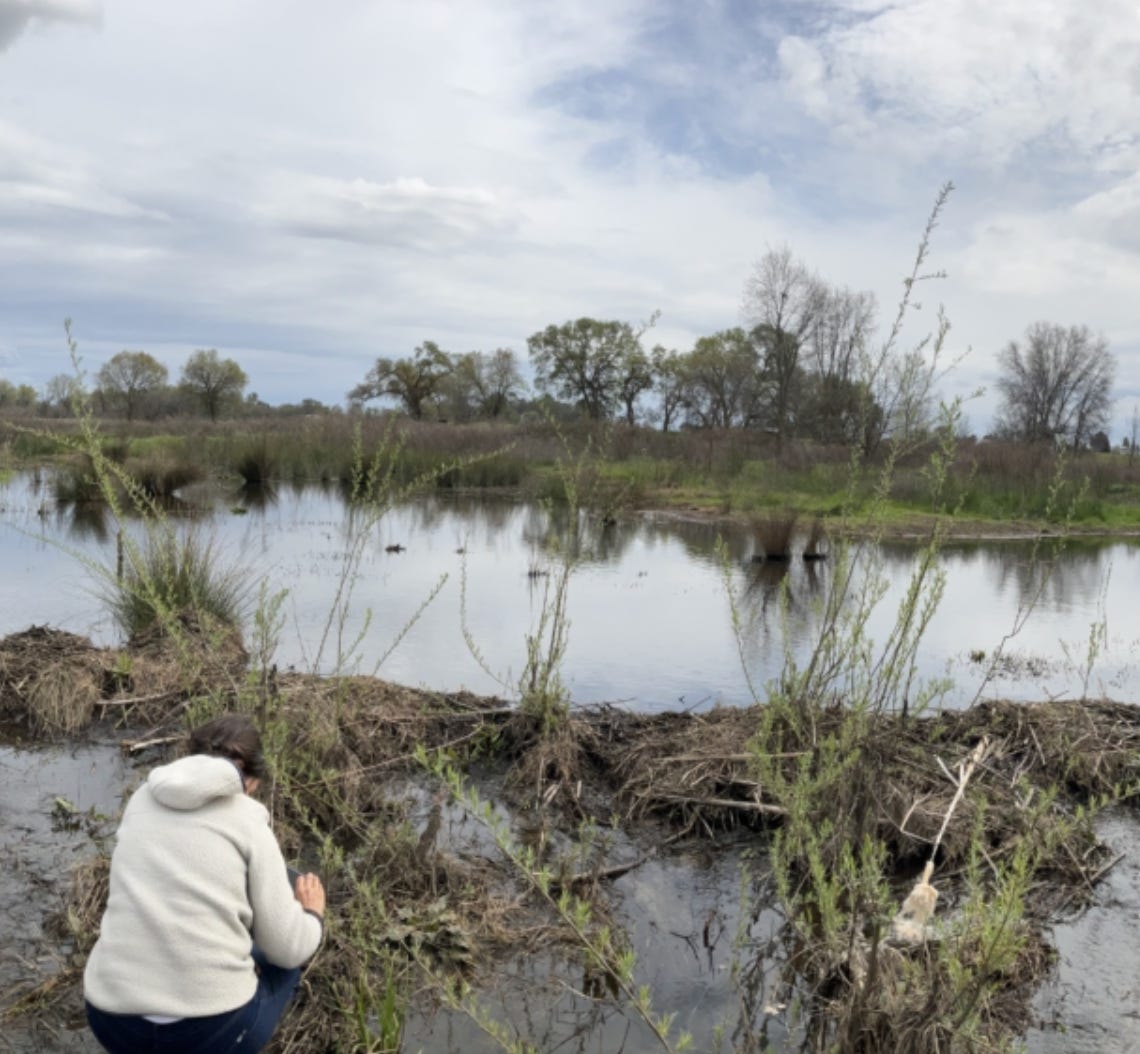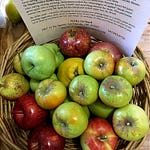Kevin Swift practices low tech process based restoration, which is to say, he uses simple tools, a collaborative ethic, and a lot of humility to coax damaged and simplified waterways into fuller expressions of their aliveness.
This is potent, rewarding work that is needed everywhere—for climate resilience, drought and flood mitigation, and the health of most wild species. In my part of the world, in the interior Columbia Basin, upwards of 80% of animal species rely on riparian systems during some part of their life cycle. So the wellbeing of waterways is foundational for just about everybody’s wellbeing—including ours.
Process based restoration works to regenerate the living processes and relationships that make and maintain healthy waterways—in contrast to older paradigms of river restoration, which bring in lots of resources and earthmoving machines to construct streams that may appear healthy but are fixed: “one-and-done” as Kevin Swift says in this episode, “like a one-night stand.”
“Ideally restoration is a long-term committed relationship. It’s more like a marriage. It’s a conversation with a riverscape, where you offer a depleted dehydrated entrenched system tools and toys and food and engagement and then you get a season’s flow and the river builds something new and miraculous out of what you’ve offered it.”
— Kevin Swift
Many process based restoration practitioners model their activities after the work of beavers, who do more than any other species to add complexity and resiliency to waterways. Kevin Swift is the only person I know who actually describes himself as a “two-legged beaver.”
This reflects the reasons I reached out to Kevin in the first place: for one thing, he’s funny. And he’s deeply enmeshed—physically, spiritually, psychologically, narratively, socially—with the deep work of restoring human beings and wild systems together, at the same time, as fractals of one another.
The questions that led me to reach out to Kevin are perennial questions of this podcast: how do we act practically and expressively to embody a more well world? What struggles and sufferings of the world are mirrored in the ways we struggle and suffer? How does an enlivened and enlivening world reach back into us and enliven us? Kinward is for everyone who suspects or is sure that we are in this together.
If you listened to the short Immersion episode with Kevin, you’ll have journeyed with him into one of his restoration areas, Tasmam Kojom: a squishy vibrant wet meadow where the diverse living processes of a stream have been wooed back into action. I decided to leave this section embedded in this full episode, because I think it balances and grounds the rest of the conversation. I hope you agree.
Your feedback is very welcome, I love to learn! Drop me a note here on Substack, or on Instagram @kinward_moves.
Definitely go check out swiftwaterdesigns.com if your highest self in service to Life is interested in apprenticing in this particular crucial magical niche of collaboration with Life. And definitely watch or rewatch the flyover of the Tasmam Kojom restoration project that Kevin generously shared with us. It makes my heart sing.
Gratitudes for this episode include: to Kevin Swift for so generously sharing his time and spirit; to Greater Hells Canyon Council, for nurturing my interest in beavers and process based restoration while I was working for them over the last several years; to Nash Wahdams and Charla Lower for a high-spirited carpool to a beaver conference in Canyonville, Oregon; to new sustaining subscribers to Kinward Moves, including my brother John, who also provided some framing advice for the podcast — thank you!; to the moon for showing her power during the solar eclipse, and for letting the sun come back again; and to the beautiful nooks and crannies of the Colorado Plateau, where I was just traveling, who always remind me so vividly that water is life.














KEVIN SWIFT on the Self We Have to Save | Kinward 04